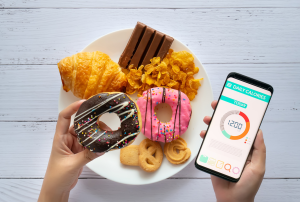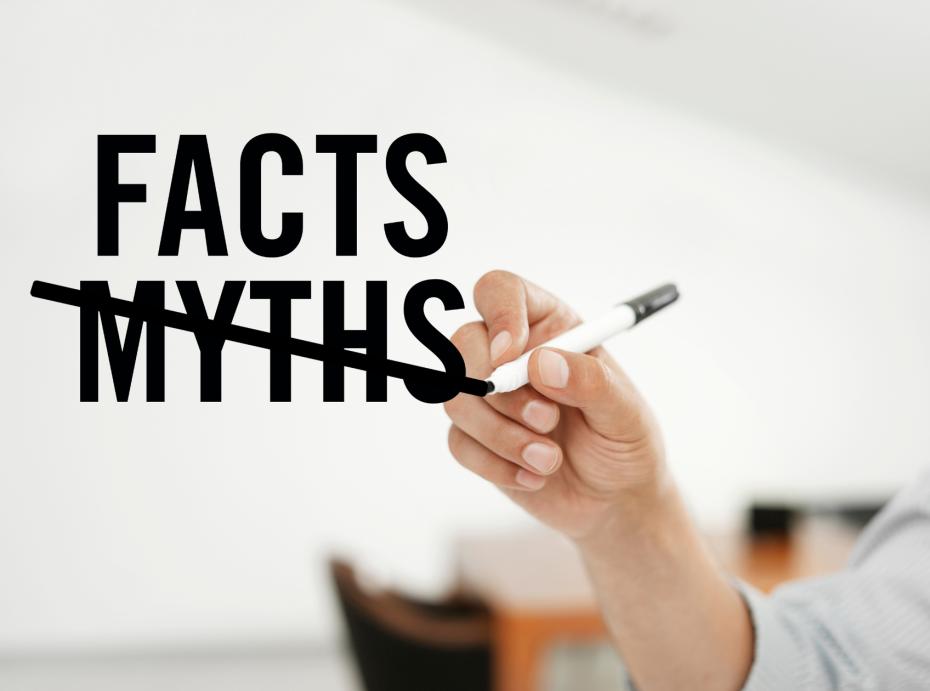Unveiling Nutrition Myths: Separating Facts from Fiction with Athlete’s Kitchen
In the realm of health and wellness, an overwhelming sea of nutrition myths often circulate, fuelled by the vast landscape of social media. Athletes Kitchen, your steadfast ally, is committed to shattering these misconceptions and steering you toward evidence-based nutritional realities.
Our mission? To equip you with knowledge that transcends fleeting trends and marketing hype.
Nutrition Myths
There are a lot, may I repeat, a lot, of myths floating around in the health and wellness space these days.
With social media, there are too many places to get fed the wrong information. There are many ‘influencers’ out there spreading fear and not sharing the whole story. They may not know the whole story, or they may simply only be sharing parts of the picture. However, to the consumer, unless they are educated or seek out further confirmation to these claims, they believe what they’re told. Who’s to blame them? Personally I’ve even fallen for some of these claims until I paused, asked myself what the full picture is and sought out more education. Outside of being a coach, one of my goals as a nutritionist and trainer is to educate people around these claims and to remind them of what really matters when it comes to food and exercise.
What does science say? In today’s newsletter we are going to break down a few of these claims.
 Nutrition Myth 1: ‘Calories In, Calories Out’ Doesn’t Work
Nutrition Myth 1: ‘Calories In, Calories Out’ Doesn’t Work
Frequently you will hear that the calories in calories out equation doesn’t work, and that one should focus more on food quality.
Yes, I agree that food quality is important, but that doesn’t mean that calories in calories out isn’t true. If you BURN MORE calories than you consume, you will be in a DEFICIT and will lose extra WEIGHT. In contrast, if you EAT MORE than you burn throughout the day, you will be in a SURPLUS and will gain weight. I use weight here intentionally instead of fat or muscle. A calorie is a unit of measurement. Food have calories and when you eat food, you consume calories. These calories are used/ burned for you to LIVE. Your body needs energy/ calories in order to survive.
The brain, heart, liver, other organs, enzymes, hormones, etc all require energy. Reading this requires energy! Exercise, be that going for a walk, a run, or doing a cardio session or lifting weights, will require MORE energy. According to the law of thermodynamics, energy cannot be created or destroyed, therefore, the energy from our foods will be used as mechanical energy for movement, chemical energy by our digestive system, and thermal energy by our organs. In order to DECREASE WEIGHT (again weight specifically), energy expended must exceed energy intake. Yes, some foods are more nutrient dense, some foods are more satiating, and some foods have less calories per gram, but that doesn’t mean calories in and calories out isn’t true!
Nutrition Myth 2: ‘Cheat Days’ Allow Unrestricted Indulgence
I’m going to start this off by saying I don’t agree with the word ‘cheat’. What are you cheating on? Cheating means that you have done something wrong.
Are you intentionally allowing yourself to enjoy ‘sometimes’ food? Instead of phrasing this as a negative, view it as a positive. Balance is key; if you are intentionally creating a 3500 kcal deficit throughout the week, and you decide to go all out on your cheat meal or day, you can potentially go above, or close enough to your average maintenance and therefore come out of your deficit. Your maintenance isn’t one number, rather it is a range. Think about it – some days we eat a bit more, others a little less.
Our bodies know how to regulate that and we have an average WEEKLY maintenance, not daily.
Let’s say that your maintenance is around 2500 kcal, and you are consuming 2000 kcal per day to create the 3500 kcal deficit for the week. Sunday comes along and you decide to go for brunch, have French toast, maple syrup, eggs, bacon, orange juice on the side. Then you treat yourself to an ice cream, in a cone, because why not, it’s my cheat day. For dinner you have a burger, bun, fries, and a glass of wine and top it off with some cheesecake! You only have 2 meals and 1 snack and it’s your cheat day, right? Well, this day is roughly providing you with around 3500 calories. So instead of your 3500 kcal weekly deficit, it’s now around 2500 kcal. However, it is a range as well, so maybe it’s around 2000 kcal. Yes, you are still in a deficit, however now you have essentially halved the deficit in a matter of one day.
While I do agree with the notion that one who is intentionally cutting calories for fat loss should take diet breaks, I am also a proponent for incorporating sometimes foods into your diet. Throughout the week, preplan for an ice cream, preplan to have a glass of wine on Tuesday night, and pre plan to go out for a burger and fries. This way you aren’t feeling as deprived. Furthermore, pre plan for a higher calorie diet break, either a day, few days or even a week. There is no need to go above your maintenance calories either. With this approach, we can avoid yo-yoing, we can sustain our progress, we can enjoy the journey, and we can feel more in control.

Nutrition Myth 3: Immediate Post-Workout Nutrition is Essential
We’ve all seen the individual chug down a protein shake on the way out of the gym, thinking that if they don’t get protein into the system their workout will be wasted.
Well, the so-called anabolic window is more like an anabolic garage door as my prof used to say! Nutrient timing involves strategically timing certain macronutrients (protein, carbs, fats) around your workouts in order to maximize performance and recovery. While yes, an intense workout session will deplete muscle glycogen and cause muscle damage, your window of opportunity to promote recovery is longer than you think. Your post workout meal will depend on the intensity of your workout and the timing, plus size and composition of your pre-workout meal.
If you are training fasted, then you may want to get some amino acids into the system to promote muscle protein synthesis. However, if you consume sufficient amino acids pre-workout, your window of opportunity to maximize muscle protein synthesis can be up to three hours post-workout before requiring another protein rich meal. It is estimated that the anabolic effect of a meal lasts 5-6 hours. Therefore; if you consume a meal 1-2 hours pre-workout, and your workout lasts around 75-90 minutes, you have around 2-4 hours to get your next protein rich meal into the system. If you’re interested in reading more about this check out this amazing article from the National Library of Medicine.
Nutrition Myth 4: Plant-Based Diets Hinder Muscle Building
It has been postulated that being on a plant-based vegan diet will hinder your ability to build muscle. This claim is largely due to the fact that plant foods are lower in certain amino acids compared to animal-based protein sources.
Leucine is the amino acid that is often referred to as the driver of muscle protein synthesis. Animal proteins are high and sufficient in leucine, to stimulate muscle protein synthesis, which then poses the question about the quality of plant proteins. If you use a combination of plant sources, such as wheat, corn, and peas, studies have shown no difference in muscle protein synthetic rates compared to whey. A few suggestions to increase some limitations that come with a plant-based diet are to increase digestibility by soaking, sprouting and using digestive enzymes. Increasing the portion sizes in order to achieve optimal amino acid consumption or combining foods together. One could also complement plant foods with essential amino acids, to ensure sufficient leucine consumption.
For reference, younger adults should aim for 700-3000 mg of leucine per meal, and older adults 2.5-2.7 grams of leucine per meal with a daily total intake of 7.5 grams of leucine. What does 2.7 g leucine look like in practical examples? 25g whey protein, 20g corn, 33g potato, 37g brown rice, 38g peas, 40g soy, 45g wheat, 47g oats, or 105g hemp.
At Athletes Kitchen, we’re dedicated to dispelling myths while embracing the principles of evidence-backed nutrition and healthy living. Our mission is to arm you with sound insights that endure the test of time, unswayed by transient fads. Trust in our commitment to your well-being and embark on a journey guided by unwavering nutritional wisdom.
- For more in-depth references and insights, visit here
